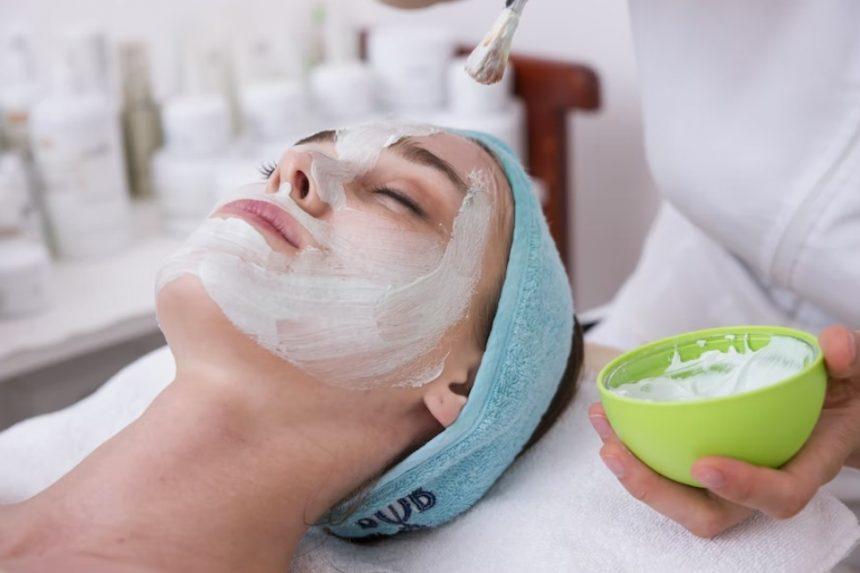Healthy, radiant skin is essential for a glowing complexion, and it can be achieved with the right skin care routine. However, with so many skin care products and tips out there, it can be difficult to know which ones to focus on. To help you easily achieve the healthy, glowing skin you desire, here are five essential skin care tips that you should incorporate into your daily routine. These tips will help to protect your skin from environmental damage, keep it hydrated, and give you the beautiful glow you’ve been looking for. Whether you’re a skincare beginner or a seasoned pro, these tips will give you the perfect foundation for a glowing complexion.
1. Wear sunscreen every day
Sunscreen is the first step to a glowing complexion. This should be the first thing you apply every morning, right after you cleanse your face. If you want to achieve healthy, glowing skin, sunscreen is a must-have. Not only does it prevent UV damage, but it can also slow down the aging process. If you don’t wear sunscreen every day, you leave your skin susceptible to damage from the sun. This can lead to premature wrinkles, hyperpigmentation, and an uneven skintone. Additionally, sunscreen is crucial if you have sensitive skin. It can protect your sensitive skin from the harmful effects of the sun, and it can help reduce redness. A sunscreen with SPF 30 or higher is recommended for everyday use, especially if you have sensitive skin. Finding the perfect sunscreen for your skin type can be difficult, but it’s worth the effort.
2. Hydrate, hydrate, hydrate
When it comes to skincare, hydration is the key to healthy, glowing skin. Healthy skin is rich in water, and consistent hydration will help your skin look plump and healthy. By hydrating your skin, you can also prevent premature aging, hyperpigmentation, and wrinkles. There are many ways you can incorporate hydration into your skincare routine. First, you want to make sure to use a moisturizer daily. A moisturizer will seal in hydration, protect against environmental damage, and it will help prevent wrinkles. You also want to make sure to drink plenty of water each day. Water is essential for healthy skin, and it can prevent many skincare issues. It can help prevent skin dryness, sagging, and it can help improve your overall complexion. Additionally, water will help keep your skin looking fresh and hydrated. Avoiding alcohol, cigarettes, and caffeine will also help your skin stay hydrated.
3. Exfoliate regularly
Exfoliation is an essential step in your skincare routine, and it can make a huge difference in your complexion. Exfoliating your skin on a regular basis will help remove dead skin cells that have built up, unclog pores, and even your skintone. It’s recommended that you exfoliate two to three times a week to achieve the best results. There are two types of exfoliation that you can incorporate into your routine – manual and chemical. Manual exfoliation uses a physical scrub to remove dead skin cells, while chemical exfoliation uses ingredients like acids to slough off dead skin cells. When it comes to choosing an exfoliator, look for something that’s gentle enough to use on your sensitive skin. Exfoliating can be very damaging on sensitive skin, so it’s important to be careful.
4. Incorporate antioxidants into your skincare routine
Antioxidants are essential to healthy, glowing skin. These powerful ingredients protect your skin against damage, and they can even reverse the signs of aging. There are many antioxidants that you can incorporate into your skincare routine, such as vitamin C, green tea, and retinol. Vitamin C is an essential antioxidant that can boost your skincare routine. It can even out your skintone, protect against UV damage, and it can reduce sagging. Green tea is another powerful antioxidant that can protect your skin from UV damage. It can also reduce redness and irritation, and it can prevent signs of premature aging. Retinol is a great antioxidant that can be applied topically or taken orally. It can fight wrinkles and improve your skin’s texture. When it comes to choosing an antioxidant, look for one that is suitable for your skin type.
5. Get plenty of sleep and practice stress management
Sleep is an essential part of your skincare routine, and it can have a huge impact on your complexion. Getting plenty of sleep each night can help regulate your hormone levels, promote collagen production, and it can help reduce redness in your skin. Additionally, managing your stress levels can also improve your complexion. Stress can lead to breakouts, especially if your skin is sensitive. When your skin is constantly being stressed, breakouts can occur, and your complexion can become dull. Getting plenty of sleep and reducing your stress levels can help regulate your hormones and keep your skin healthy and glowing.
6. Understand your skin type
Your skin type can determine how you should care for it. There are several common skin types, including oily, dry, and combination. If you don’t know your skin type, there are ways to find out. You can check your skin for dryness and redness, take note of your skin’s texture, and pay attention to how it reacts to different products. Once you’ve determined your skin type, you can create a skincare routine that’s perfect for you. Oily skin needs hydration, but it can become oily quickly, so it’s important to look for lightweight moisturizers. Dry skin is often thin, and it can be prone to redness and irritation, so it should be hydrated with rich, gentle moisturizers. Combination skin is often a mixture of both types of skin, so it needs a hydrating moisturizer and a lightweight serum.
7. Cleanse your skin every day
Cleansing your face is the first step of your skincare routine, and it’s a critical part of any skin care regimen. There are countless cleansers out there, and it can be challenging to find the right one for your skin type. When selecting a cleanser, look for something that’s gentle enough to use on your skin every day. Avoid using a harsh cleanser, because it can damage your skin and lead to irritation or breakouts. Additionally, avoid using bar soap on your face. Bar soaps are full of harsh chemicals, and they can be very drying on your skin. When choosing a cleanser, look for something that will gently cleanse your skin, but also hydrate it. Avoid cleansers that have ingredients that are too harsh for your skin type, and always choose something that’s mild enough for daily use.
8. Avoid harsh ingredients
There are many harmful ingredients in skin care products, such as parabens, sulfates, and synthetic fragrances. Avoiding harsh ingredients is essential for healthy, glowing skin, and it can also help prevent breakouts. When selecting your skincare products, look for ones that don’t contain harmful ingredients. When choosing skincare products, always opt for the ones that are dermatologist-recommended. Dermatologists know what ingredients are safe and effective, so they can recommend the best products for your skin. You can also check online forums and blogs to read reviews of different products.
9. Invest in quality products
Prevention is key when it comes to skincare, and it’s important to stay away from skincare products that promise quick results. When it comes to skincare, quality matters, and it’s important to invest in products that are effective. There are many skincare products out there, and each one claims to be the best. However, not all skincare products are created equal. When choosing your skincare products, always opt for the ones that are proven to be effective. Quality skincare products are worth the money, and they can help improve your complexion over time.
10. Visit a dermatologist
A dermatologist is an expert in skincare, and they can offer professional skincare advice. A dermatologist can help you identify your skin type, answer any questions that you might have, and they can recommend products that are best for your skin. Additionally, dermatologists can also help you identify any skincare issues you might have and recommend ways to prevent them from occurring in the future. There are many ways that you can improve your complexion, but it starts with protecting








